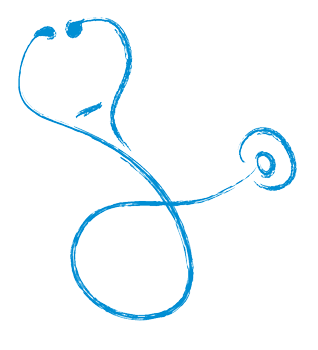|
|
| Line 121: |
Line 121: |
| | </b></big> | | </b></big> |
| | }} | | }} |
| − |
| |
| − | ===Old===
| |
| − | __NOTOC__
| |
| − | {|cellspacing="0" cellpadding="0" width="800px" style="clear:both; background-color:#fcfcfc; border:3px solid #50A6C2;" align="center"
| |
| − | |-
| |
| − | |colspan="4" style="background-color:#E0EEEE; padding:4px 4px 4px;"|<big><center>'''WikiClinical'''</center></big>
| |
| − | |-
| |
| − | |-
| |
| − | |colspan="4"|
| |
| − | {|width="740px" align="center" style="clear:both; background-color:#fcfcfc;"
| |
| − | |<p align="justify"><center>Welcome to the WikiClinical Section of WikiVet. Here is discussed all aspects of the 'sick' animal. For all conditions we hope to provide; common signalment and history, clinical signs, useful diagnostic tools and then the treatment and expected outcome of each case. You can search this section of WikiVet by either looking in the species section or in the systems section. When editing this section please add one of the animal logo templates on every page so that all users know which animal that particular page belongs too.</center></p align>
| |
| − | |}
| |
| − | |-
| |
| − | |colspan="4" align="center"|<!---------------------------Main content------------------------>
| |
| − | {|style="margin:0px 0px 0px 0px; background:none;" align="center" width="740px"
| |
| − | |class="MainPageBG" style="width:50%; border:1px solid #cef2e0; background:#f5faff; vertical-align:top; color:#000;"|
| |
| − | {|width="100%" cellpadding="2" cellspacing="0" style="vertical-align:top; background:#f5faff;"
| |
| − | !
| |
| − |
| |
| − | <h2 id="mp-tfa-h2" style="margin:0; background:#cedff2; font-size:120%; font-weight:bold; border:1px solid #a3bfb1; text-align:left; color:#000; padding:0.2em 0.4em;">Content by Species</h2>
| |
| − | |-
| |
| − | |style="color:#000;" align="left"|
| |
| − | {|cellpadding="3" align="center" style="clear:both; background-color:#fcfcfc"
| |
| − | |{{click|width=80px|height=64px|link=Canine Clinical Section|image=dog-logo.png}}
| |
| − | |{{click|width=80px|height=78px|link=Feline Clinical Section|image=Cat-logo.png}}
| |
| − | |{{click|width=80px|height=78px|link=Bovine Clinical Section|image=Cow-logo.png}}
| |
| − | |{{click|width=80px|height=63px|link=Equine Clinical Section|image=Horse-logo.png}}
| |
| − | |-align="center"
| |
| − | |<center>[[Canine Clinical Section|Canine Section]]</center>
| |
| − | |<center>[[Feline Clinical Section|Feline Section]]</center>
| |
| − | |<center>[[Bovine Clinical Section|Bovine Section]]</center>
| |
| − | |<center>[[Equine Clinical Section|Equine Section]]</center>
| |
| − | |-
| |
| − | |{{click|width=80px|height=80px|top=30px|link=Porcine Clinical Section|image=Pig-logo.png}}
| |
| − | |{{click|width=70px|height=88px|link=Small Ruminants Clinical Section|image=Sheep-logo2.png}}
| |
| − | |{{click|width=80px|height=87px|link=Camelid Clinical Section|image=Alpaca-logo.png}}
| |
| − | |{{click|width=80px|height=88px|link=Avian Clinical Section|image=Chicken-logo.png}}
| |
| − | |-align="center"
| |
| − | |<center>[[Porcine Clinical Section|Porcine Section]]</center>
| |
| − | |<center>[[Small Ruminants Clinical Section|Small Ruminant<br>Section]]</center>
| |
| − | |<center>[[Camelid Clinical Section|Camelid Section]]</center>
| |
| − | |<center>[[Avian Clinical Section|Avian Section]]</center>
| |
| − | |-align="center"
| |
| − | |
| |
| − | |{{click|width=80px|height=80px|top=20px|link=Exotics Clinical Section|image=Lizard-logo.png}}
| |
| − | |{{click|width=80px|height=88px|link=Clinical Techniques|image=clin-logo.png}}
| |
| − | |
| |
| − | |-align="center"
| |
| − | |
| |
| − | |<center>[[Exotics Clinical Section|Exotics Section]]</center>
| |
| − | |<center>[[Clinical Techniques]]</center>
| |
| − | |
| |
| − | |}
| |
| − | |}
| |
| − | |class="MainPageBG" style="width:45%; border:1px solid #cedff2; vertical-align:middle;background:#f5faff;"|
| |
| − | {|width="100%" cellpadding="2" cellspacing="0" style="vertical-align:top; background:#f5faff;"
| |
| − | !<br>
| |
| − | |-
| |
| − | |align="center"|[[Image:clin-logo copy.png]]
| |
| − | |}
| |
| − | |}
| |
| − | {|style="margin:0px 0px 0px 0px; background:none;" align="center" width="740px"
| |
| − | |class="MainPageBG" style="width:50%; border:1px solid #cef2e0; background:#f5faff; vertical-align:top; color:#000;"|
| |
| − | {|width="100%" cellpadding="2" cellspacing="0" style="vertical-align:top; background:#f5faff;"
| |
| − | !
| |
| − |
| |
| − | <h2 id="mp-tfa-h2" style="margin:0; background:#cedff2; font-size:120%; font-weight:bold; border:1px solid #a3bfb1; text-align:left; color:#000; padding:0.2em 0.4em;">Content by System</h2>
| |
| − | |-
| |
| − | |style="color:#000;" align="left"|
| |
| − | <big><b>
| |
| − | [[Alimentary Diseases]]
| |
| − |
| |
| − | [[Cardiovascular Diseases - WikiClinical|Cardiovascular Diseases]]
| |
| − |
| |
| − | Respiratory Diseases
| |
| − |
| |
| − | Musculoskeletal Diseases
| |
| − |
| |
| − | Neurological Diseases
| |
| − |
| |
| − | [[Lymphoreticular and Haematopoietic Diseases - WikiClinical|Lymphoreticular and Haematopoietic Diseases]]
| |
| − |
| |
| − | Endocrine Diseases
| |
| − |
| |
| − | Urogenital Diseases
| |
| − |
| |
| − | Dermatological Diseases
| |
| − | </b>
| |
| − | |}
| |
| − |
| |
| − | |}
| |
| − | |-
| |
| − | |<span style="line-height:1;"><br></span>
| |
| − | |}
| |










